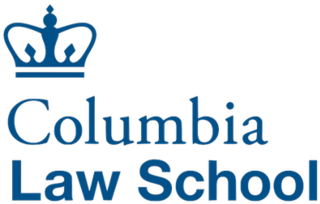
Columbia Law School is the law school of Columbia University, a private Ivy League university in New York City. Columbia Law is widely regarded as one of the most prestigious law schools in the world and has always ranked in the top five law schools in the United States by U.S. News and World Report. Columbia Law is especially well known for its strength in corporate law and its placement power in the nation's elite law firms.

Cornell Law School is the law school of Cornell University, a private Ivy League university in Ithaca, New York. One of the five Ivy League law schools, it offers four law degree programs, JD, LLM, MSLS and JSD, along with several dual-degree programs in conjunction with other professional schools at the university. Established in 1887 as Cornell's Department of Law, the school today is one of the smallest top-tier JD-conferring institutions in the country, with around 200 students graduating each year. Cornell Law School has consistently ranked within the top tier of American legal institutions, known as the T14.
Boston University School of Law is the law school of Boston University, a private research university in Boston, Massachusetts. It is consistently ranked among the top law schools in the United States and considered an elite American graduate legal institution.

New York University School of Law is the law school of New York University, a private research university in New York City. Established in 1835, it is the oldest law school in New York City and the oldest surviving law school in New York State. Located in Greenwich Village in Lower Manhattan, NYU Law offers J.D., LL.M., and J.S.D. degrees in law.
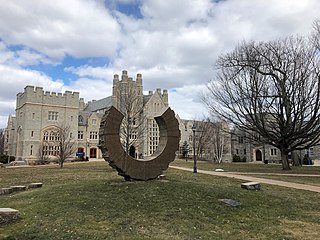
The University of Connecticut School of Law is the law school associated with the University of Connecticut and located in Hartford, Connecticut. It is the only public law school in Connecticut and one of only four in New England. In 2020 it enrolled 488 JD students.

The University of New Hampshire Franklin Pierce School of Law is a public law school in Concord, New Hampshire, associated with the University of New Hampshire. It is the only law school in the state and was founded in 1973 by Robert H. Rines as the Franklin Pierce Law Center, named after the 14th President of the United States and New Hampshire native. The school is particularly well known for its Intellectual Property Law program.
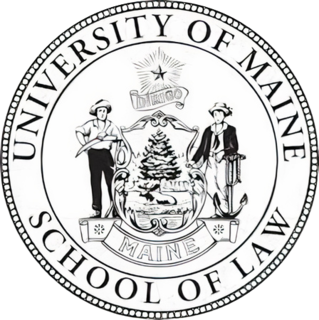
The University of Maine School of Law is public law school in Portland, Maine. It is accredited by the American Bar Association and Maine's only law school. It is also part of the University of Maine System. The school's current dean is Leigh Saufley, who assumed the post in 2020. Since 1972, the School of Law has been located in the University of Maine School of Law Building, which is adjacent to the University of Southern Maine's Portland campus.
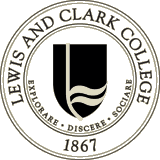
The Northwestern School of Law of Lewis and Clark College, is an American Bar Association-approved private law school in Portland, Oregon.
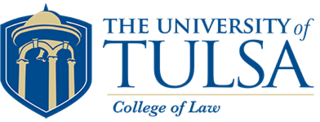
The University of Tulsa College of Law is the law school of the private University of Tulsa in Tulsa, Oklahoma. For 2021, U.S. News & World Report ranked the University of Tulsa College of Law at #111 among all law schools in the United States. It is the only law school in the Tulsa Metropolitan Area and northeastern Oklahoma.
Elon University School of Law is an American law school located in Greensboro, North Carolina, occupying the former downtown public library building. Established in 2006, Elon Law is one of nine graduate programs offered by Elon University. It earned full accreditation from the American Bar Association in 2011.
The DePaul University College of Law is the professional graduate law school of DePaul University in Chicago. The College of Law’s facilities encompass nine floors across two buildings, with features such as the Vincent G. Rinn Law Library and Leonard M. Ring Courtroom. The law school is located within two blocks of state and federal courts, as well as numerous law firms, corporations and government agencies.
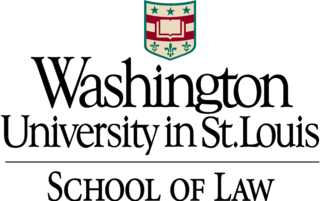
Washington University in St. Louis School of Law (WashULaw) is the law school of Washington University in St. Louis, a private university in St. Louis, Missouri. WashULaw has consistently ranked among the top law schools in the country; it is currently ranked 16th among the 196 American Bar Association-approved law schools by U.S. News & World Report and 9th in the country by AboveTheLaw.com. Prominent alumni include numerous U.S. senators, congressmen, governors, cabinet members, federal and state judges, businessmen, and scholars. Founded in 1867, WashULaw is the oldest continuously operating law school west of the Mississippi River. The law school was originally located in downtown St. Louis but relocated in 1904 to the Danforth Campus of Washington University in St. Louis.

Sterry Robinson Waterman was a Vermont lawyer and a United States Circuit Judge of the United States Court of Appeals for the Second Circuit.

The Pepperdine University Rick J. Caruso School of Law is the professional law school of Pepperdine University located in Malibu, California.
A Master of Studies in Law (M.S.L.), also Master of Science of Law or Master of Legal Studies (M.L.S.) or Juris Master (J.M.) or Masters of Jurisprudence (M.J.) or Master in Law (M.L.), is a master's degree offered by some law schools to students who wish to study the law but do not want to become attorneys. M.S.L. programs typically last one academic year and put students through a similar regimen as first-year Juris Doctor (J.D.) students but may allow for further specialization. Despite having similar names, an M.S.L. is distinct from a Master of Laws (LL.M.), which is a postgraduate law degree.

The Faculty of Law is a faculty of the University of Windsor in Windsor, Ontario, Canada. The first class of students matriculated in 1968, and the current building was opened in 1970. The Faculty has grown immensely over the past 50 years, increasing its national profile through its innovations in research and from thousands of alumni across Canada and the world. The 2017 endowment to the Faculty of Law was $10.2 million. The Faculty is also the current academic host institution of the Canadian Bar Review (CBR), the most frequently cited journal by the Supreme Court of Canada. In 2018, the Faculty of Law was ranked the 5th best law school in Canada by Canadian Universities magazine.

The University of Missouri School of Law is the law school of the University of Missouri. It is located on the university's main campus in Columbia, forty minutes from the Missouri State Capitol in Jefferson City. The school was founded in 1872 by the Curators of the University of Missouri. Its alumni include governors, legislators, judges, attorneys general, and law professors across the country. According to Mizzou Law's 2016 ABA-required disclosures, 82 percent of the 2016 class obtained full-time, long-term, JD-required employment nine months after graduation.

The Indiana University Maurer School of Law is located on the campus of Indiana University in Bloomington, Indiana. The school is named after Michael S. "Mickey" Maurer, an Indianapolis businessman and 1967 alumnus who donated $35 million in 2008. From its founding in 1842 until Maurer's donation, the school was known as the Indiana University School of Law – Bloomington.

Penn State Law, located in University Park, Pennsylvania, is one of two separately accredited law schools of the Pennsylvania State University. Penn State Law offers J.D., LL.M., and S.J.D. degrees. The school also offers a joint J.D./M.B.A. with the Smeal College of Business, a joint J.D./M.I.A. degree with the School of International Affairs, which is also located in the Lewis Katz Building, as well as joint degrees with other graduate programs at Penn State.

Molly Rose Gray is an American attorney and politician serving as the 83rd and current lieutenant governor of Vermont. A member of the Democratic Party, she was an assistant attorney general for Vermont from 2018 to 2021.



















